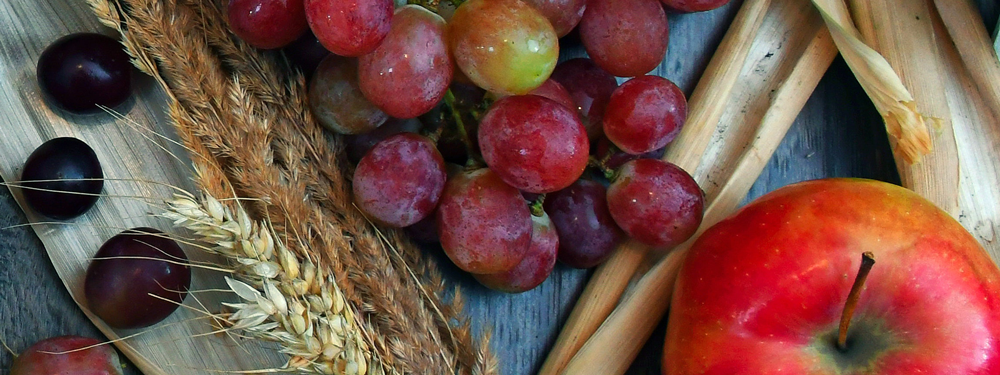
By Eli Fisher
We’ve all had the experience. We open the refrigerator door and realize that that horrible odor emanating therefrom is coming from some long-forgotten bowl of leftovers that has worked its way into an inaccessible corner (a “science project,” in the vernacular of our house). Such discoveries usually lead me to resolve to do better, but the hectic pace of my life eventually leads to it happening again.
The amount of food that gets thrown away in our country is unfortunate, and even tragic, while so many people worldwide are starving or going hungry. (Estimates are that we throw away as much as 25 percent of the food we buy!) Not that I'm advocating the “Children are starving in Asia” argument in favor of cleaning our plates (an argument that has resulted more in overeating than in resolving the problem of hunger).
Beyond the excessive (and sinful) waste, I sometimes speculate what the spiritual costs must be to a society that has such luxury to take food for granted. Certainly, one of those costs is in the way that we say grace over our meals. There is a fundamental difference between what we, as part of a wealthy industrialized society, mean when we thank God for our food and what people in agricultural societies or people who struggle to put food on their tables mean when they bless their food.
Think about it. When they say grace, chances are that nearly everything on their table has been prepared from their own flocks and gardens and represents a visible sign of months of hard work and good fortune. Or they are pausing to thank God for something that, quite literally, stands between them and starvation. In either case, food serves not only as a constant reminder of God's active, sustaining presence in their lives but also represents the goodness of God's creation. Although we might capture that spirit on special occasions (say, Thanksgiving Day), for the most part when we say grace it's usually a hurried prayer over prepackaged or pre processed food from the supermarket. Chances are that we have played no role in cultivating any part of what we're eating, or even have a clue as to where it came from. More and more often we don't even prepare the meals. Our grace is said over carryout.
It's no accident that the major Israelite religious festivals—Passover, Pentecost, and Booths—celebrate both historical events of salvation and agricultural seasons. That's because God's leading the Israelites out of bondage in Egypt was only one aspect of the story of salvation. Another equally important aspect was that God led them into a “land flowing with milk and honey” where they could live comfortably off the produce of the land and their work, with no one forcing them to pay a substantial part of their crop in taxes.
Salvation meant that they were given the opportunity not only to raise their crops but also the opportunity—in fact, the commandment—to relax on occasion and enjoy the fruit of their labor. The ancient Israelite understanding was that all of creation, and not just human beings, will share in that final salvation. As an extension, each meal took on deep religious significance as well.
I'm not sure that I have an answer how to deepen the meaning of the words we say at grace or how to reclaim the link between salvation and creation, other than to urge people to become more aware of the issues and to try to reclaim some of our heritage. In my home, we try our best to vary the prayers that we use for grace (we currently have five, four of them sung, that my daughters take turns choosing from). During spring, summer, and autumn, Friday afternoons are always our “picnic” supper days, when (weather permitting) we eat out-of-doors at one of the local parks and then spend time playing, walking, or communing with nature. We raise vegetables and have a bird feeder in our yard. And we are doing our best to ensure that our daughters are learning the stories of the Bible, so that they will understand and appreciate the wonderful gift of creation that God has given us to care for.
Read Genesis 1:1-2:4a.
Read the passage a second time, more slowly. As you read, imagine that you are present as the events take place. What sights, sounds, feelings, tastes, and emotions do you experience?
Verses 11-12 and 20-22 describe a world that is teeming with goodness in the form of plants and animals.
How has human society, past and present, worked to deny access to some to the goodness of creation? What reasons most often motivate that denial?
What concrete action can you take to embody your role as a steward of creation?
Eli Fisher served as Associate Editor of Alive Now and lives in Nashville with his wife and three daughters. He is also a contributor to the Spiritual Formation Bible.
From “Blessing Our Food” by Eli Fisher in Alive Now in Alive Now. Published in Alive Now, July/August, Vol. 30, No. 4. Copyright © 2000 by The Upper Room.
Share on Socials